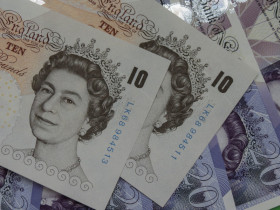The Great Britain pound ended the week as the weakest currency on the Forex market. While the sterling got some help from domestic macroeconomic data, Brexit fears continued to hurt the currency. The US dollar and the euro were also soft. Commodity currencies were clear winners during the past trading week.
The week started poorly for Britain’s currency due to expectations that pro-Brexit Boris Johnson will become a new prime minister. The sterling continued to suffer further on increasing fears of hard Brexit as well as rising unemployment claims. But by the end of the week, the pound found some support from strong retail sales data and a solid consumer inflation print. That allowed some market analysts to speculate that the worst for the currency has passed.
Meanwhile, the euro was extremely vulnerable after the European Central Bank changed its inflation target, making 2% a ceiling not a mid-point of the target range. Investors interpreted the move as a sign that the ECB plans to ease its monetary policy even further.
The US dollar also suffered from the anticipation of monetary easing. The outlook for an interest rate cut from the Federal Reserve was supported by comments from many Fed officials, though New York Fed Bank President John Williams clarified that his comments about the need to take “preventative measures” should be considered an academic observation, not a signal about future Fed actions.
GBP/USD edged down from 1.2540 to 1.2501, touching the minimum of 1.2382 during the week. EUR/GBP opened at 0.8952, rallied to the weekly maximum of 0.9051, but pulled back to 0.8971 by the weekend. GBP/AUD declined from 1.7875 to 1.7738, while the week’s minimum was at 1.7628.
If you have any questions, comments, or opinions regarding the Great Britain Pound, feel free to post them using the commentary form below.
Pound Ends Week Weakest amid Brexit Fears, Domestic Data Fails to Boost Currency
